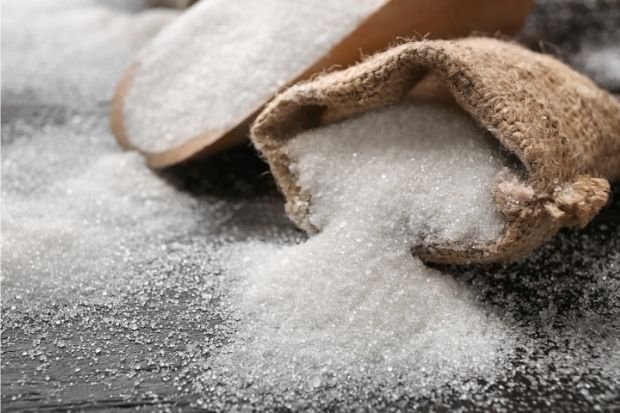Marcos eyes ‘more complicated’ liberalized sugar trade
MANILA, Philippines—It may become tough because of the powerful and moneyed sugar lobby, but the Marcos administration is looking at dismantling this cartel to bring prices of many other manufactured food items down, the country’s chief economist said.
“That’s surely part of the things that we need to look at closely. We need to improve our competitiveness,” said Socioeconomic Planning Secretary Arsenio Balisacan in an interview.
“We need to get our manufacturing to take off, and food processing is a big part of our manufacturing — sugar is a very important input there,” Balisacan said.
“So we’ll have to look at that issue closely, and ensure that as we are trying to protect our sugar producers, we don’t do it at the expense of the rest of the economy, particularly our manufacturing,” he said.
Asked what was the problem of the domestic sugar production sector amid currently higher prices of the commodity, Balisacan replied: “Obviously, we are protecting our sugar industry. [However,] we have to examine the issue closely because we also don’t want to harm the chances for our manufacturing and related industries to become more dynamic, more robust players.”
Article continues after this advertisementThe Duterte administration had attempted to jumpstart liberalizing sugar trade to slash prices. In any case, a study commissioned by Neda, the state planning agency, recommended gradual import liberalization to keep prices low while hurting local producers and benefiting all consumers. Poor and rich alike.
Article continues after this advertisementIn its 2021 report titled “An Assessment of Reform Directions for the Philippine Sugar Industry,” Neda consultant Brain Trust Inc. said “the case for sugar trade liberalization appears weak at this time.”
“Should it be pursued nonetheless, it would be best done gradually and only partially, especially in the face of severe distortions in the world sugar market,” the report read.
Aiming to dismantle the sugar industry’s protection, Duterte’s economic managers allowed more rice imports, but the plan stalled until Duterte stepped down.
As early as this, Balisacan conceded that sugar tariffication would be “more complicated.”
Balisacan noted that homegrown sugar players had been claiming that their sector “has not been ready since the 1970s” for liberalization, “but we really need to start looking at the issue.”
“It is a balancing act. On the one hand, you keep and maintain employment in the sugar industry. On the other hand, there are employment opportunities that you are foregoing as a result of not having competitively priced and affordable sugar that’s input to our industries,” said Balisacan, who is also Neda chief,
“So it’s a balancing act that we have to find out. Obviously, we can and we need to support our local industries, but we need to find instruments that do not distort prices of other sectors dependent on sugar,” the Neda chief said.
Despite similar sources of imports, such as Thailand, sugar prices in the Philippines were relatively higher than in its Asean neighbors.
Brain Trust’s report had said its simulations showed that “if inter-industry effects are ignored, fully liberalizing trade in sugar would predictably hurt planters and millers, both of whose profits are projected to decline by 57 percent, while consumers gain in welfare (consumer surplus) by up to 65 percent.”
“There is a modest net gain to the overall society of P2 billion, but this must be weighed against the implementation costs of mechanisms for the winners (consumers) to compensate the losers (planters and millers), which could well offset the gains to be redistributed,” the report said.
According to the report, investments and productivity may gain P7 billion to P9 billion from liberalizing sugar trade across all sectors.
The 11-percent or so projected drop in the prices of sugar and other goods, which use it as raw material, could nonetheless slash employment in sugar manufacturing by 7 percent and sugarcane production by 16 percent, on top of a 6.8 percent decline in output.
“Food manufacturing industries, including those using sugar would see the increased output (by 1 percent) and employment (1.1 percent) with reduced prices (0.24-0.41 percent), while imports for these commodities would decline over time (by just under 1 percent),” the report said.
“The industry sector as a whole would see incremental growth with sugar trade liberalization, albeit small (0.08 percent by 2030),” it added.
The report said every Filipino consumer of sugar benefited from liberalization even as “higher-income groups tend to gain more than lower-income groups do” as more affluent Filipinos consume more of the commodity.
“The lowest income decile gains P262 million, progressing up to P1.6 billion for the richest income decile, reflecting higher consumption levels of the affected products by the better endowed. All told, liberalization would benefit consumers but would favor the rich more than the poor,” it said.
Unlike rice, whose liberalized importation helped ease prices and redound to big consumers, especially poor families, the study noted that sugar took a smaller portion of average Filipino households’ budgets.
“Given now widespread dietary health concerns, [sugar] is even subject to moves to reduce consumption, including additional excise taxation,” the report said.
“Thus, even as liberalization would lead to a net overall welfare gain for society, the net gains to be achieved may not be substantial enough to offset the downsides in terms of adverse distributional impacts and non-economic costs in the social and political realms,” it added, referring to the negative impact of liberalized trade on sugar industry players.
As such, “should the government wish to pursue sugar trade liberalization, it must be through a gradual easing of controls over sugar trade to ensure that gains therefrom are equitable and will not unduly penalize the groups directly dependent on the sugar industry,” the report said.
